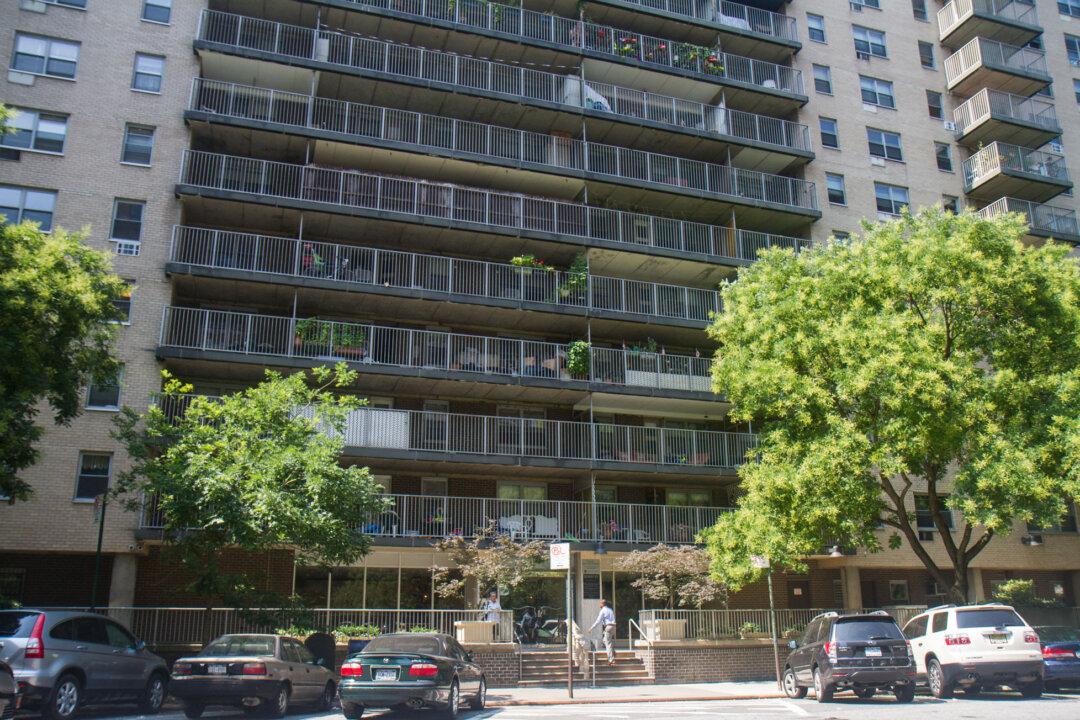NEW YORK—As this year’s historically low rent increase goes into effect Oct. 1, tenants, elected officials, and advocates are starting the campaign for rent reform, calling for a rent freeze for 2015.
“Even these historic lows do not make up for the times before that,” said Council member Jumaane Williams, chair of the Housing Committee, at a rally at City Hall Tuesday. “We are here because we have not caught up and we will not be able to catch up, and we are losing more units than we'll ever be able to build to get ourselves out of this problem.”
Affordable housing is a centerpiece of Mayor Bill de Blasio’s administration, and he has set a goal to preserve 120,000 affordable units and build 80,000 in a decade.
Thousands of rent-stabilized units, which have their annual rent increases capped by Rent Guidelines Board (RGB), are lost every year for a variety of reasons.
The elected officials and tenants are also calling on Albany to repeal the Urstadt Law, which gives the state Legislature control over rent regulation rules.
When the Urstadt Law was passed in 1971, New York City was not financially stable, but the situation has changed significantly since, Williams said. The majority of the state’s rent-regulated units are located in the city.
Assemblywoman Linda Rosenthal said the city also needed to have vacancy decontrol repealed to prevent landlords from deregulating a unit for profit by evicting a tenant.
She has sponsored a bill to provide more protection to tenants who are being pushed out by landlords.
Rent Freeze
This year, the RGB voted to authorize increases of 1 percent on one-year leases and 2.75 percent on two-year leases of rent stabilized apartments, of which there are about 1 million in New York City.
Mayor Bill de Blasio had advocated for a rent freeze as public advocate, and again stated his support for a freeze right before the RGB’s final vote. Tenants said they are already over-burdened, as over half of New Yorkers pay more than 30 percent of their income as rent—the federal definition of paying too much.
Nonprofit tenant lawyers said the rent burden does play a significant part in preserving affordable housing, as one of their prevailing problems is tenants coming into their clinics looking for rent support.
It is possibly the one thing they cannot help tenants with, said Rodrigo Sanchez-Camus, supervising attorney for NMIC Legal Services, in an earlier interview. If tenants can no longer afford their apartments, there is no legal remedy.
Council member Ben Kallos said the increases set by the RGB years before have been higher than necessary, as the Price Index of Operating Costs—the metrics that determine inflation for building owners— often exceeds the inflation of consumer goods as shown on the consumer price index.
Frank Ricci, director of government affairs of the Rent Stabilization Association, said it was too early to tell if a rent freeze made sense.
“There’s no data to call for a rent freeze. It’s pre-emptive to call for a freeze or increase,” Ricci said.
And as for a rent rollback some tenants and officials are calling for, the math wouldn’t add up, Ricci said. “Everyone in condos, co-ops, are getting no rollbacks; their expenses keep increasing. Why should tenants be exempt?”
Williams added he was not advocating to keep landlords from making a profit. “I don’t want landlords to be poor either,” he said.
State Politics
Legislators are tying the affordable housing fight to the upcoming state elections, telling voters to support officials who support repealing the Urstadt Law.
In June 2015, the city’s rent regulation laws will be up for renewal. The laws are renewed every six years and there has never been a democratic majority in the Senate during that time, Williams said.
Some tenants were also concerned the protections would be watered down when the laws are renewed. For instance, there are loopholes like charging stabilized tenants for major capital improvements (MCI) made to a building, said Sharon Canns, an organizer on the Upper West Side whose building is working to overturn a recent MCI.
Sometimes the MCIs are for improvements or repairs that the landlord should have made, or they were not made to the extent the landlords claim, tenants said, and the expenses add up quickly.
“It does not help New York to have a large portion of us in homeless shelters,” Canns said.





